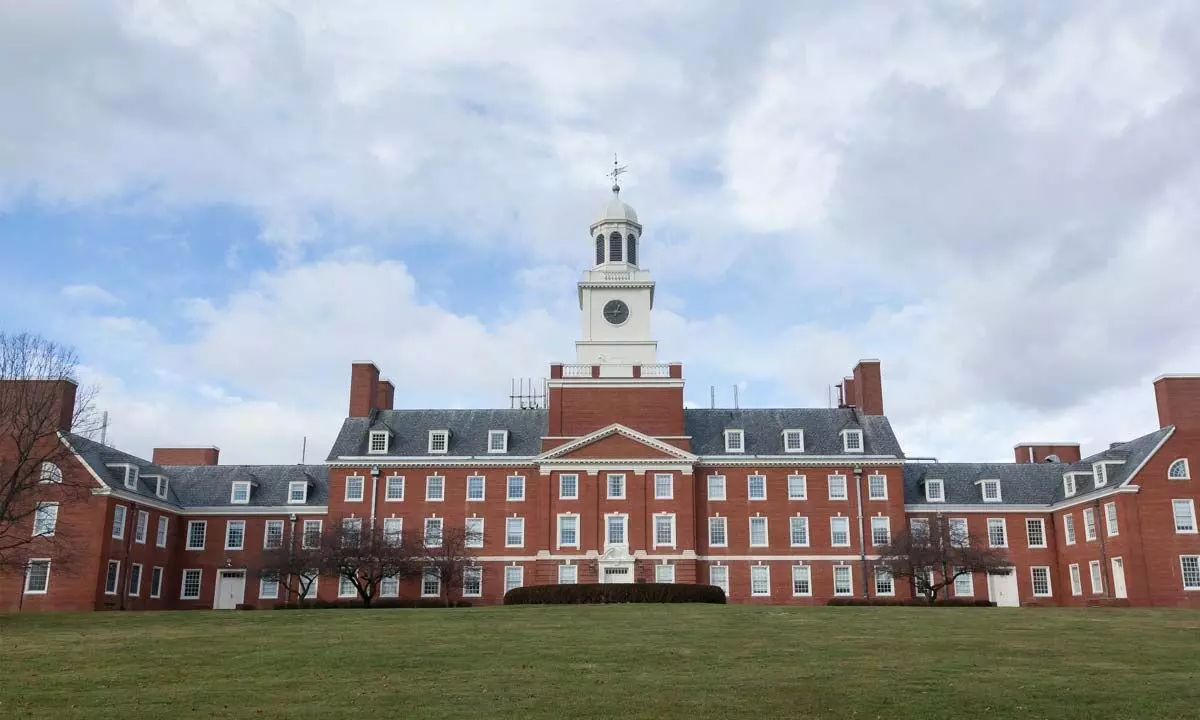Social media reeks of 'Hinduphobia'

Rutgers University
Researchers at Rutgers University in the US have found that there is a sharp rise in 'anti-Hindu disinformation' across social media and messaging platforms.
Researchers at Rutgers University in the US have found that there is a sharp rise in 'anti-Hindu disinformation' across social media and messaging platforms. Members of the Network Contagion Lab at Rutgers University-New Brunswick (NC Lab), found evidence of a sharp rise and evolving patterns of hate speech directed toward the Hindu community across numerous social media platforms, according to a new report.
The analysis showed that the hate directed towards the Hindu community has been growing largely unrecognised for the past several years on social media. Not all tweets are from Pakistan. Rutgers noticed there are state-sponsored information operations from Iran and other countries. The report of Rutgers University presents in detail how white supremacist and 4chan genocidal Pepe memes about Hindus are being shared prolifically within extremist Islamist web networks on messaging service Telegram and elsewhere.
According to the analysis of one million tweets, Iranian trolls disseminated anti-Hindu stereotypes to fuel division as part of an influence campaign to accuse Hindus of perpetrating a genocide against minorities in India, the report stated. The report has been titled: 'Anti-Hindu Disinformation: A Case Study of Hinduphobia on Social Media'.
"In July the signal on the Hinduphobic code words and memes reached record highs that could inflame a spill out to real world violence, especially in light of escalating religious tensions in India and the recent beheading of an Indian shopkeeper," the report stated. Notably, India in January 2022 had asked the United Nations to recognise 'Hinduphobia' and other acts of religious hatred against Buddhism and Sikhism.
Addressing the virtual conference of the Delhi-based Global Counter-Terrorism Centre (GCTC), India's ambassador to the United Nations TS Tirumurti, had asked the world body to acknowledge anti-Hindu, anti-Sikh and anti-Semitism threats. "Emergence of contemporary forms of religiophobia, especially anti-Hindu, anti-Buddhist and anti-Sikh phobias is a matter of serious concern and needs attention of the UN and all member states to address this threat," Tirumurti had said.
The latest report details how white supremacist and 4chan genocidal Pepe memes about Hindus are being shared prolifically within extremist Islamist web networks on messaging service Telegram and elsewhere. Researchers at the Rutgers NC Lab used artificial intelligence to better understand the development of a disguised and coded language pattern shared on social networks.
Social media platforms largely are unaware of the code words, key images, and structured nature of this hatred even as it is surging. "There is, unfortunately, nothing new to the bigotry and violence faced by the Hindu population," said John J. Farmer Jr., director of both the Miller Center and the Eagleton Institute of Politics at Rutgers University–New Brunswick. "What is new is the social media context in which hate messages are being shared. Our prior work has shown a correlation between the intensity of hate messaging over social media and the eruption of real-world acts of violence." Do the anti-Hindu forces within India understand this?








